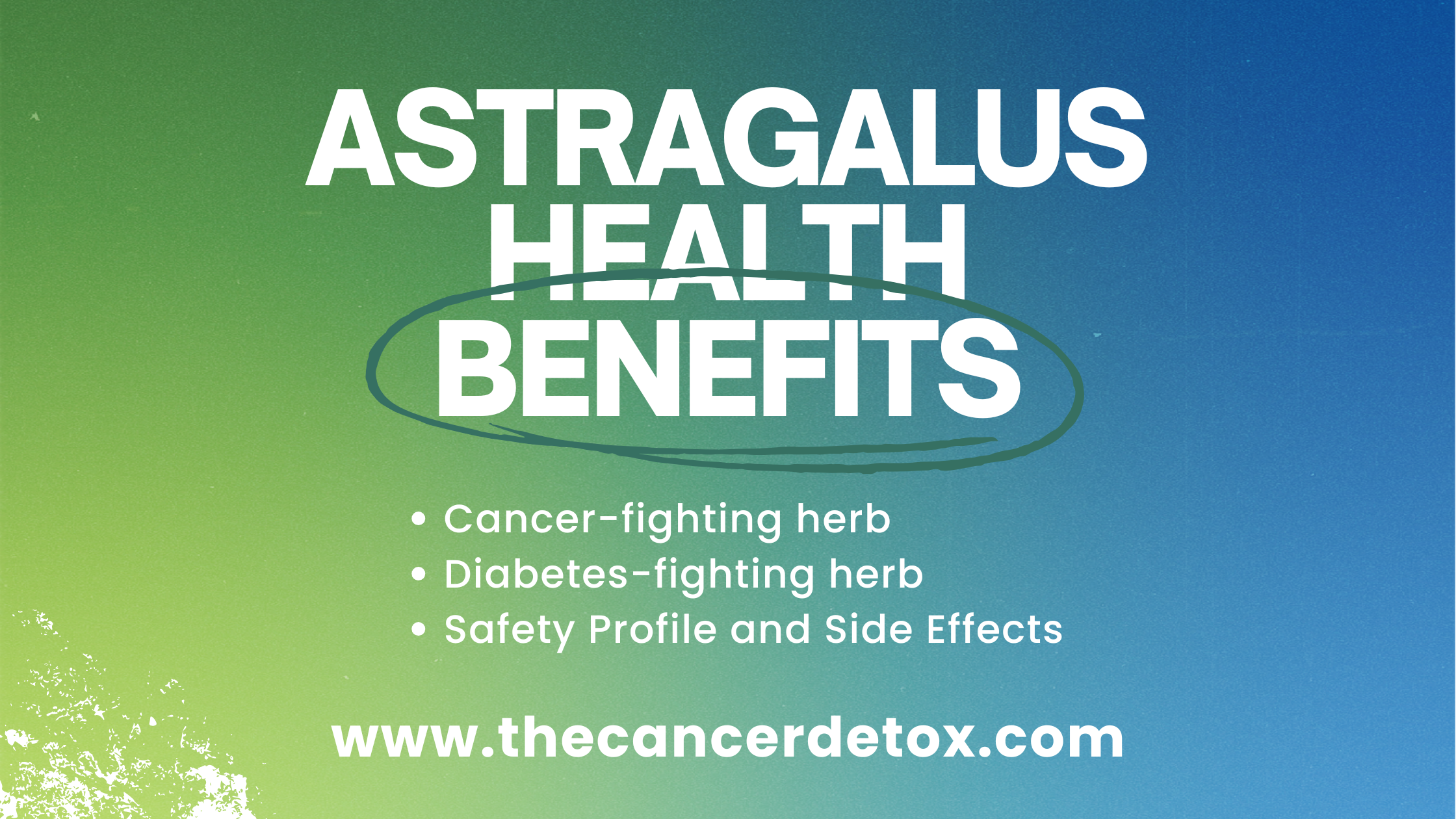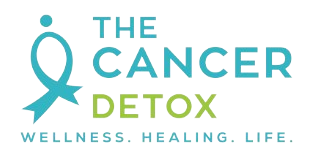
Astragalus: Health Benefits, Dosing, Side Effects
ASTRAGALUS:
HEALTH BENEFITS, APPROPRIATE DOSE, SIDE EFFECTS

Astragalus
INTRODUCTION
Astragalus has been consumed in Asia for more than 2,000 years for heart health, autoimmune and allergic diseases, boosting the immune system, and for cancer treatment or in conjunction with chemotherapy. It can be prepared and consumed as a tea, in soups, liquid tinctures, capsules, and sometimes intravenously (in certain hospitals).
Astragalus membranaceus (known as Huang Qi) is a plant belonging to the Luguminosae family. It inhabits regions of North America, Africa and Asia. It is primarily produced in China, South Korea, Mongolia, and other regions [11].
The active ingredient is Astragalus membranaceus (the same name as the plant), which comes from the root of the plant. When it comes to disease prevention, and possibly treating various diseases, it checks multiple boxes for maintaining health with the following properties observed either in scientific studies or anecdotally :
- Anti-diabetes
- Anit-inflammatory
- Anti-oxidant
- Anti-cancer
- Anti-viral
- Cardioprotective
- Diabetic nephropathy (complication of diabetes mellitus reference: https://pmc.ncbi.nlm.nih.gov/articles/PMC11155431/)
- hepatoprotective
- Neuroprotective
- Immune regulation/immunostimulation
The active ingredients of Astragalus are saponins, mostly triterpenoid polysaccharides, which include astragaloside IV (AS-IV) which are known to affect immune system activity to help in preventing chronic diseases. These actives make it one of the most frequently used cancer-fighting herbs, diabetes-fighting herbs and heart disease-fighting herbs in alternative medicine.
HELPFUL RESOURCES
Get more helpful resources from our Health Coach and Scientist, Dr. Dee Grace, PhD here:
- Learn about the foods that prevent cancer in our articles 10 Foods that Prevent Cancer and 6 Foods for Cancer Prevention
- Learn about breast cancer survival in our articles 4 Tips to Improve Breast Cancer Survival, The Breast Cancer Diet that Increases Survival,
- FREE DOWNLOAD our FREE breast cancer survival kit that includes questions to ask your doctor, 8 tips to help lower your risk of a new or recurring breast cancer diagnosis, and 3 days of easy plant-based recipes
- Learn about colon cancer survival in our articles Prevent a Colon Cancer Recurrence and The Optimal Colon Cancer Diet
Now back to the article…
TRADITIONAL USES
Astragalus has been traditionally used in formulations with other herbs and in some more acclaimed Chinese medicine products such as Yupinfeng granule and Wui Baifeng pill [1]. As previously mentioned, it is known as Huangqi in Traditional Chinese Medicine (TCM) and Radix Astragali in Latin [2]. Traditional Chinese medicine states that astragalus improves chi, sore support and benefits water in the body.
ASTRAGLUS TREATMENT FOR CANCER, DIABETES, AND MORE
The disease prevention and disease-fighting potential of Astragalus has been documented and there is science-based evidence on its potential. For instance, clinical studies in China have shown good efficacy in treating allergic diseases in children with asthma [1].
Astragalus has been shown to be effective against a variety of cancers [11]. Its anticancer potential lies in altering several different mechanisms of the cancer cell, including:
- Inhibiting tumor cell proliferation (or growth)
- Inhibiting tumor migration (aka metastasis)
- Initiating apoptosis (i.e., cancer cell death)
The following is a list of scientific studies showing the effect Astragalus has on treating a variety of chronic diseases including type 2 diabetes and cancer:
- DIABETES AND ASTRAGALUS [7]:
- Type 1 and 2 diabetes create microvascular defects throughout the body but particularly in the kidneys that can result in kidney disease (i.e., diabetic retinopathy).
- This kidney disease has the signs and symptoms of edema (swelling), protein in the urine, and protein and nitrogenous products in the blood.
- Typical treatment includes prescription medications like renin-angiotensin-aldosterone system blockers (RAAS), angiotensin-converting enzyme (ACE) inhibitors (e.g., benazepril), and angiotensin receptor blockers (ARBs) which block RAAS to rescue urinary protein levels and control blood pressure.
- A meta-analysis examined the effects of Astragalus in combination with prescription medications and compared it to standard prescription medication alone:
- Out of 19 studies included, the urinary protein excretion rate (UPER) was reported in 1436 participants at baseline (721 in the combo treatment group and 735 in the control group) and then post-treatment (treatment lasted for 3 or more weeks).
- The weighted mean difference was -24.76 for Astragalus + RAAS blocker group compared to RAAS blocker group alone.
- The UPER significantly decreased in participants receiving Astragalus + RAAS blocker compared to participants receiving RAAS blocker alone (bias using GRADE evaluation was measured by the researchers and the results were shown that these results were “high quality”).
- CANCER PATIENTS (Restoring graft versus host reaction)
- Astragalus restored graft versus hots reaction when compared to healthy controls (n=20).
- It restored immune system response which exceeded some of the controls after administration of the drug, which helps show its potential as an herb that can fight cancer.
- LUNG CANCER AND ASTRAGALUS (Non-Small Cell) [10]:
- Lung cancer is the leading cause of death worldwide with non-small cell lung cancer being the most frequently diagnosed type. Often radical surgery cannot be performed on these patients due to the advanced stage of the disease upon diagnosis.
- Standard lung cancer treatment includes platinum-based chemotherapy, however, its efficacy is often dampened by the advanced stage of the disease and the many side effects of the drug.
- A meta-analysis examined the effects of Astragalus in combination with platinum-based chemotherapy vs. patients who only received platinum-based chemotherapy:
- Of the 19 clinical trials reviewed, 831 patients in the Astragalus and chemotherapy group that showed a significant positive tumor response (RR: 1.19) and a 48% reduction in bone marrow toxicity as compared to the patients that received chemo alone (n=802)
- BREAST CANCER AND ASTRAGALUS
- Breast cancer is the most commonly diagnosed cancer in women and the leading cause of cancer death in women
- Chemotherapy remains the pillar of breast cancer treatment
- Scientific advancements in the treatment of breast cancer now include hormonal therapies, targeted therapies, and immunotherapies, which can be added onto chemotherapy treatment (i.e., adjuvant treatment)
- The adverse reactions (ARs) that occur with chemotherapy include: fatigue, nausea and vomiting, and bone marrow suppression (e.g., low platelets, white blood cells)
- In a Phase 2 study from Taiwan, cancer patients with advanced cancers treated with standard chemotherapy plus Astragalus membranous polysaccharides showed improvements in chemotherapy-related fatigue when compared to patients treated with chemotherapy alone [12]
- In a Phase 4 study, which included patients with advanced breast cancer showed improvement in chemotherapy-related fatigue when treated with standard chemotherapy plus Astragalus membranous polysaccharides
- LUPUS AND ASTRAGALUS
- Patients with systemic lupus erythematosus (SLE) treated with Astragalus showed it lowered the patients’ natural killer cell activity when given (n=28)
- LUNG INJURY
- Lung injury from radiation can be a common thing in those who receive radiation for various types of cancers (e.g., lung cancer)
- Astragalus (formulated with other herbs) improved the incidence of radiation-induced lung injury in over 1000 patients
- It also improved lung injury and reduced the inflammatory factors seen with lung injuries [3, 4]
- DISCLAIMER: Reporting bias has been noted in clinical trials from China that examined Traditional Chinese Medicine herbs like Astragalus. (see reference 8 below). The data quality for these trials are often reported as low quality due to lack of control during randomization, too few patients in these trials and other reporting biases. This information is intended for educational purposes only and you should consult with your healthcare provider and a licensed herbalist for additional information on this herb.
SAFETY
Astragalus membranaceus has demonstrated low side effects and toxicity in human and animal studies. However, those taking hypotensives and antihypertensive medications should avoid large doses of the herb [5].
The NIH’s National Institute for Complementary and Integrative Health notes that astragalus is safe when used conventionally, which is oral supplementation [9]. Reports of safe use for up to 4 months at 60 mg a day have been reported. They report “side effects with oral use can be rash, itching, nasal symptoms, and stomach issues though uncommon.” [9]
Women who are pregnant or breastfeeding should use extreme caution with using this herb as animal studies have shown toxicity in pregnant mice [9].
Several studies have specifically looked at safety in various patient types. For example, in patients with solid tumors, doses of 4600 mg and 9800 mg of astragalus were administered with mild adverse reactions of dizziness and nausea [6].
DOSE
Astragalus dosage for adults will depend on the form of the herb (e.g., root, liquid tincture), the person’s health condition, intended use and your age.
General Guidelines:
Capsules
The cancer-fighting herb of Astragalus can be found in capsule form, with safe doses ranging from 250 mg to 1,000 mg a day. It is best to divide the dose into 2 – 3 doses per day.
Tincture or Liquid Extracts
A common way to consume this cancer-fighting herb is to ingest many drops of an astragalus tincture. The astragalus dose can vary depending on how the liquid tincture is prepared, however, it is recommended to take between 40 – 80 drops of liquid tincture/extract of a 1:5 tincture, 2 – 3 times a day.
Tea
You can use astragalus as a cancer-fighting tea alone or with other herbs. Simmer 3 – 6 grams of dried astragalus root in hot water for 30 minutes to 1 hour and you’ll have a nice tea to sip on throughout the day.
Food (soups, decoctions)
Astragalus can be eaten and is considered in a group of foods that fight cancer. Consuming between 1 – 15 grams of dried astragalus root a day is safe for most adults.
DISCLAIMER
The information in this article are for educational purposes and is not meant to treat, diagnose or prescribe medications or herbs. For questions on the information contained in this article, please consult with your healthcare provider. Reporting bias has been noted in clinical trials from China that examined Traditional Chinese Medicine herbs like Astragalus. (see reference 8 below). The data quality for these trials are often reported as low quality due to lack of control during randomization, too few patients in these trials and other reporting biases. This information is intended for educational purposes only and you should consult with your healthcare provider and a licensed herbalist for additional information on this herb.
ABOUT US
 Hi! I am Dee Grace Ph.D., Scientist and Health Coach based in Atlanta, Georgia, USA. The Cancer Detox helps cancer patients and preventers (people who want to prevent):
Hi! I am Dee Grace Ph.D., Scientist and Health Coach based in Atlanta, Georgia, USA. The Cancer Detox helps cancer patients and preventers (people who want to prevent):
- Learn the cancer-fighting foods and supplements, in the right amounts, that can prevent a new or recurring cancer,
- Get better care from their doctors during their cancer treatment process to help improve their survival outcomes and
- Reduce the financial burden of cancer treatment with ways to lower treatment costs
If you are a cancer patient Schedule a complimentary call (click here) with me now to discuss how to reduce your financial burden and get a list of questions every patient needs to ask their oncologist.
Check out my latest book “Cancer Prevention: Diet and Lifestyle Factors that Reduce Your Risk” that includes 24 Prevention Habits focused on a cancer diet for prevention, and over 40 cancer prevention guidelines for fighting breast, lung, colon, and prostate cancers.
REFERENCES
[1] Yu S, Pen W, Qiu F, Zhang G: https://www.sciencedirect.com/science/article/pii/S0753332222013786?via%3Dihub).[2] https://pmc.ncbi.nlm.nih.gov/articles/PMC7167792/
[3] https://pmc.ncbi.nlm.nih.gov/articles/PMC10980465/ [4] https://journals.sagepub.com/doi/epdf/10.1177/1534735403256419 [5] https://journals.sagepub.com/doi/epdf/10.1177/1534735403256419 [6] https://pubmed.ncbi.nlm.nih.gov/39469996/ [7] https://pmc.ncbi.nlm.nih.gov/articles/PMC11155431/ [8] https://pubmed.ncbi.nlm.nih.gov/23864210/ [9] https://www.nccih.nih.gov/health/astragalus [10] https://pmc.ncbi.nlm.nih.gov/articles/PMC6426520/ [11] https://pmc.ncbi.nlm.nih.gov/articles/PMC11280308/ [12] https://pmc.ncbi.nlm.nih.gov/articles/PMC11514294/#CR11

